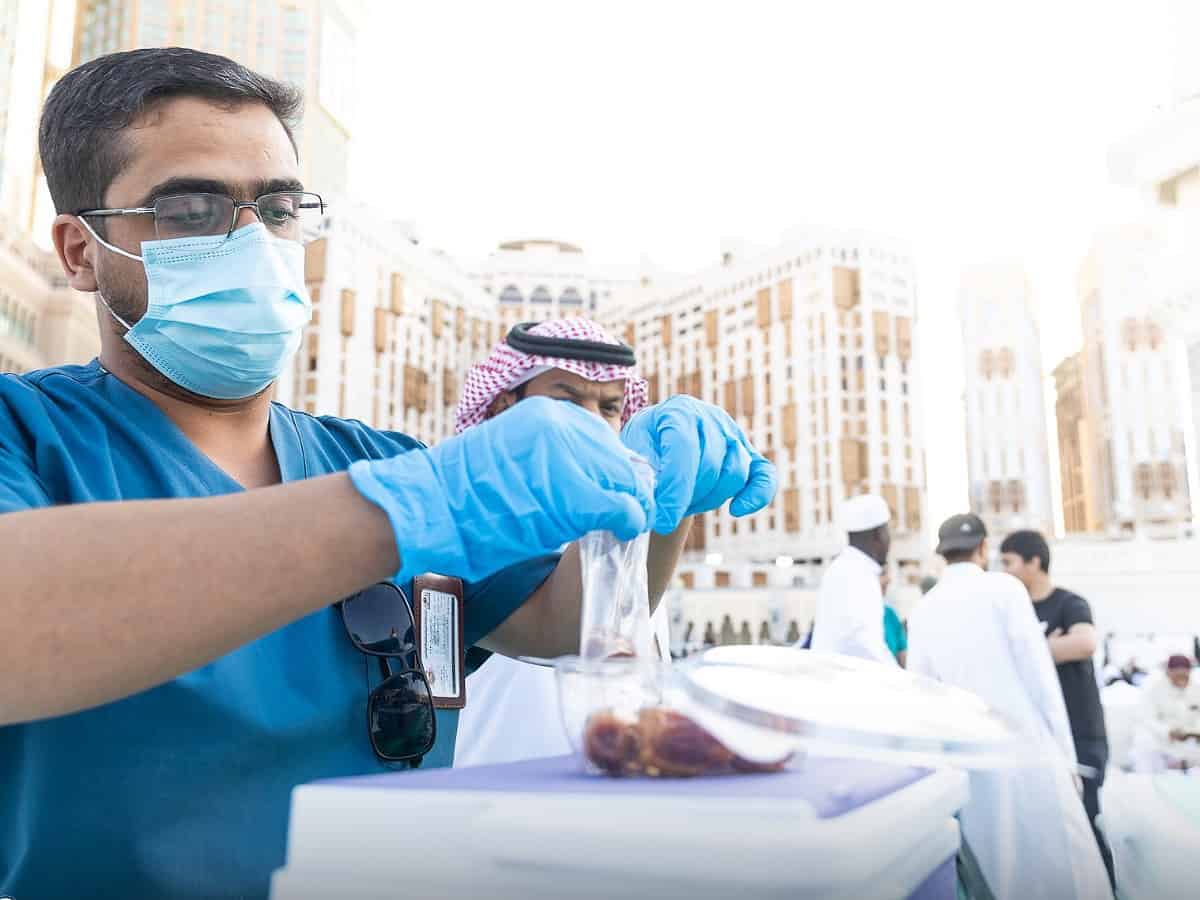
Riyadh: With the holy month of Ramzan approaching, the Kingdom of Saudi Arabia has launched a program to examine the dates, which are given to break the fast in the Grand Mosque in Makkah Al-Mukarramah, the Saudi Press Agency (SPA) reported.
The tests are conducted by specialists from the General Presidency for Affairs of the Grand Mosque to ensure the quality of the dates provided for worshippers.
A team has been appointed to conduct field tours of the sprawling site to check the quality of dates served in fast-ending meals and to carry out 12 field and laboratory tests including moisture testing, iron and zinc levels, fungi and coliform bacteria, and metallurgical.
The tests also includes heavy metals, sugars, and insoluble acids, as well as checking the weight and size, matching their specifications, and matching quality standards.
The tests come in the run-up to the holy month of Ramzan.
Ramzan is expected to start this year on March 23, although the exact date is likely to be announced on the night of March 22 by the country’s moon-sighting committee.
What is Ramzan?
In Islam, Ramzan is the ninth month of the Islamic calendar, also known as the Hijri calendar— a lunar calendar consisting of twelve months beginning with Muharram, and ending with Zul-Hijjah. Each month starts with the sighting of the moon. Eid Al-Fitr, on the other hand, marks the end of the month-long fast.
The calendar has been observed for more than 1,440 years and is used to date important Islamic events including the start of Ramzan, Eid-Al-Fitr, and the beginning of the Haj.
Ramzan is the holiest month in the Islamic calendar and is believed to be the month during which the Quran was revealed to Prophet Muhammad. Muslims fast from sunrise to sunset, and abstain from food and drink during this period.



